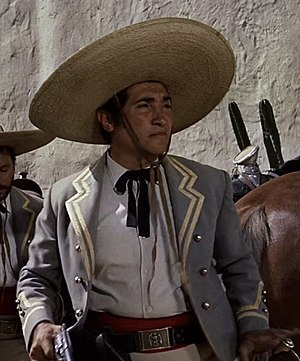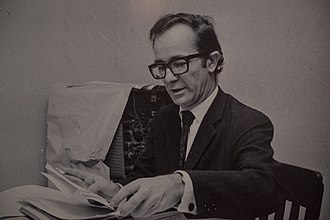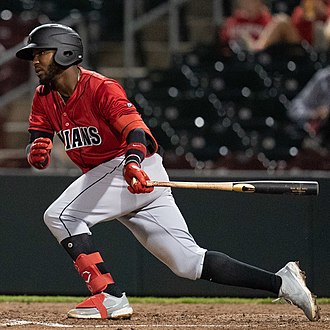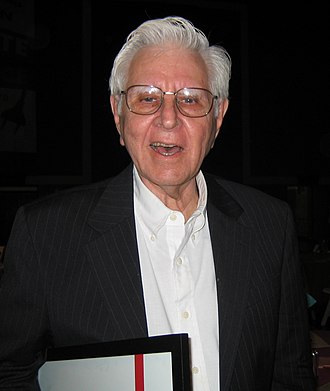Discover Your Roots
SIGN UPDiscover Your Roots
SIGN UPRodolfo is a male name of Spanish origin, meaning "Fame Wolf." It is derived from the combination of the words "fame," which denotes renown or reputation, and "wolf," symbolizing strength, loyalty, and intelligence. Notable individuals bearing this distinguished name include athletes, politicians, actors, and musicians from various countries such as Brazil, Mexico, Italy, and the Philippines. Additionally, the name Rodolfo has also been attributed to fictional characters in renowned opera productions and literary works. With its rich history and widespread usage, Rodolfo carries a sense of nobility and strength, making it a popular choice for parents seeking a name that exudes charisma and distinction for their sons.

Rodolfo Pérez Acosta, also known as Rudolph Acosta, was a prominent Mexican-American character actor recognized for his portrayal of Mexican outlaws and American Indians in Hollywood western films. He was born on July 29, 1920, in El Paso, Texas, and later moved to Los Angeles, where he pursued drama studies at Los Angeles City College and UCLA. Acosta's career took off after appearing in John Ford's film "The Fugitive" and Emilio Fernández's "Salón México," which earned him a Best Supporting Actor nomination at the 1950 Ariel Awards. He became a familiar face in American films, often cast as bandits, Native American warriors, and outlaws. Acosta also made notable television appearances in series such as "The High Chaparral," "Cheyenne," and "Bonanza." Despite his success on screen, Acosta's personal life was marked by marital issues and divorces. He passed away on November 7, 1974, due to liver cancer. Throughout his career, he left a lasting impact on the film industry and was posthumously honored with a star on Newhall, California's Walk of Western Stars.

Rodolfo "Corky" Gonzales (1928-2005) was a Mexican-American boxer, poet, political organizer, and activist who played a pivotal role in the Chicano movement during the 1960s. Born in Denver, Colorado, Gonzales grew up in a tough neighborhood during the Great Depression, experiencing poverty firsthand. Despite the hardships, he excelled in boxing, retiring with an impressive record and eventually being inducted into the Colorado Sports Hall of Fame. His boxing career also contributed to his prominence, which he later used for his political endeavors.Gonzales was deeply involved in political activism, initially within the Democratic party before transitioning to Chicano Nationalist politics. His disillusionment with the two-party system led him to establish the Crusade for Justice in 1967, a crucial platform for advocating social, political, and economic justice for Chicanos. Through the Crusade for Justice, he organized the Mexican American community in Denver, leaving a lasting impact on the fight for cultural and political rights.In addition to his activism, Gonzales was a poet and convened the first-ever Chicano Youth Liberation Conference in 1968, which laid the groundwork for future Chicano activists and artists. His legacy continues to be celebrated, as evidenced by the honor of a Google Doodle during National Hispanic Heritage Month in 2021. Rodolfo "Corky" Gonzales remains an influential figure in the history of Chicano activism and cultural empowerment.

Rodolfo Jorge Walsh, an Argentine writer and journalist of Irish descent, is revered as the pioneer of investigative journalism in Argentina. Born in Lamarque, Walsh moved to Buenos Aires in 1941, where he delved into various occupations before finding his calling in journalism. In 1951, he embarked on his journalistic career and subsequently won the Buenos Aires Municipal Prize for Literature in 1953 for his book "Variations in Red." Notably, Walsh's impactful work includes "Operation Massacre," an investigative piece that was later adapted into a film, and his renowned "Open Letter from a Writer to the Military Junta," which he published the day before his tragic murder. Throughout his life, Walsh's unwavering commitment to exposing truth and injustice has left an indelible mark in the world of journalism and literature. His legacy lives on through his influential works and his daughter, Patricia Walsh, who has followed in his footsteps as a politician. Walsh's contributions to investigative journalism and his relentless pursuit of justice continue to inspire generations.

Rodolfo Castro, born on May 21, 1999, is a Dominican professional baseball infielder known for his time with the Pittsburgh Pirates and Philadelphia Phillies. Castro signed with the Pirates as an international free agent in 2015, making his professional debut in 2016 with the Dominican Summer League Pirates. He then progressed through the minor leagues, showcasing his talent and earning a spot on the Pirates' 40-man roster in 2020. Castro made his MLB debut in 2021 and left a mark by hitting two home runs in a game, a rare achievement in major league history. In 2022, he continued to display his power hitting, and in 2023, he was traded to the Philadelphia Phillies. Despite facing some challenges, including a thumb injury, Castro's determination led him to re-sign with the Phillies on a minor league contract in 2024. His journey is a testament to his resilience and commitment to the game. With his promising talent and dedication, Castro remains a player to watch in the world of professional baseball.

Rodolfo "Rudy" Francisco Acuña, born May 18, 1932, is an American historian and professor emeritus at California State University, Northridge, known for his significant contributions to Chicano studies. His notable 1972 book, "Occupied America: A History of Chicanos," has left a lasting impact on academia. Acuña's educational journey began at Los Angeles State College, where he earned his bachelor's and master's degrees before obtaining his PhD in history from the University of Southern California. Throughout his career, he has been instrumental in shaping the Chicano/a Studies department at California State University, Northridge, leaving a profound legacy in the field. In addition to his academic endeavors, Acuña has been involved in civil rights advocacy, co-founding the Labor/Community Strategy Center and receiving various prestigious awards for his contributions. Notably, his archives are held in the Special Collections and Archives section of the Library at California State University, Northridge, cementing his impact on future generations of scholars. Acuña's work continues to be celebrated and recognized through numerous accolades, underscoring his enduring influence in the realm of Chicano studies.
All images displayed on this page are sourced from Wikipedia or Wikimedia Commons.We use these images under their respective Creative Commons or public domain licenses. Wherever applicable, author attributions and license information are provided. If you believe an image is used incorrectly or outside its license terms, please contact us so that we can review and correct the issue.